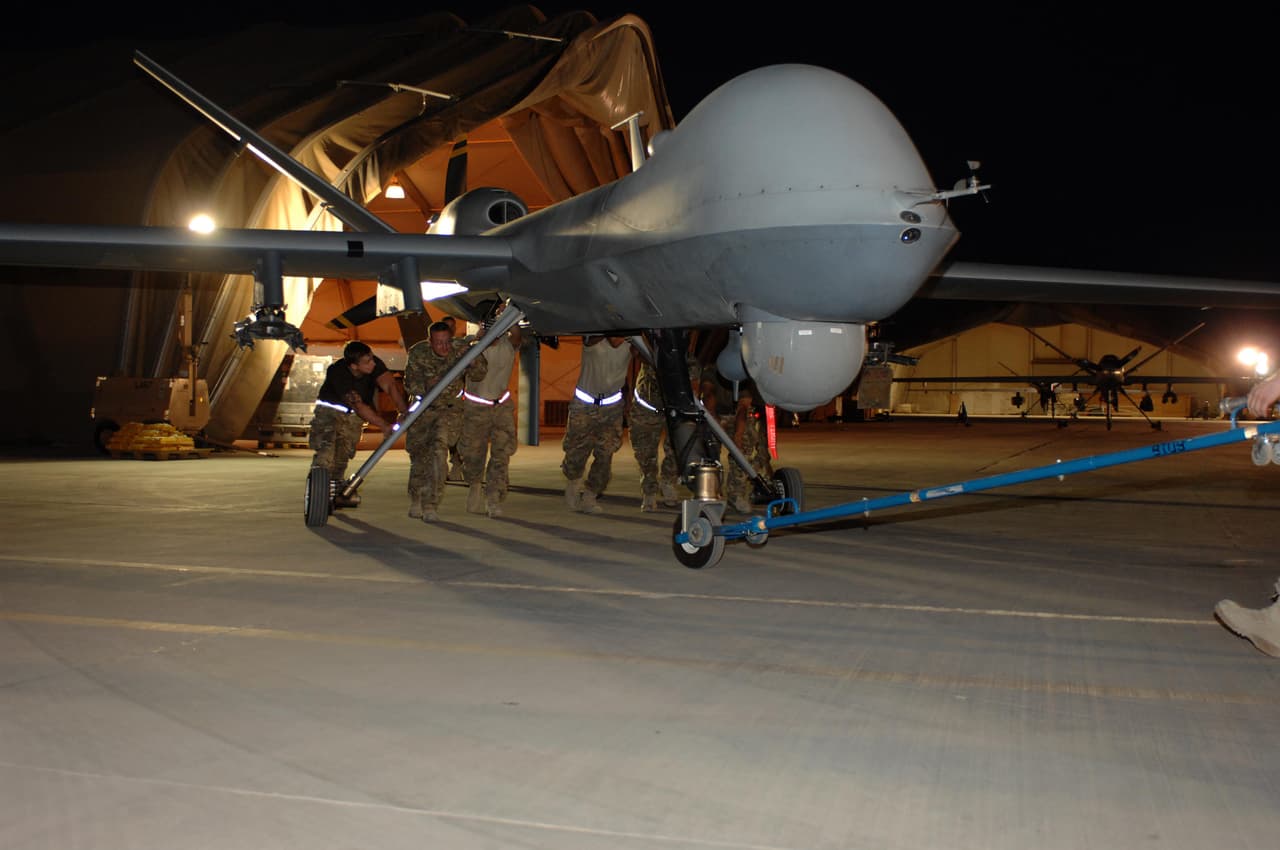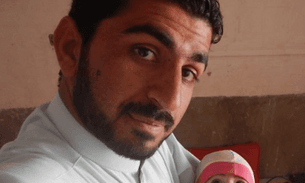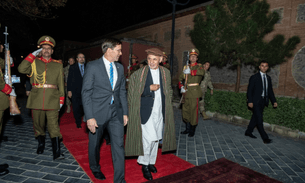
“It’s very odd” – a former UK drone operator speaks
“You’re absolutely there, you’re in the fight,” recalls former UK drone operator Paul Rolfe in this week’s Drone News podcast. “You’re hearing the guys on the ground and you’re hearing their stress, so when you finish your shift it’s very odd to then step outside… it’s the middle of the day and you’re in Las Vegas.”
For several years Rolfe helped fly Reaper and Predator drones over Afghanistan from both a launch and recovery base in Kandahar and the mission control complex in Creech, Nevada, where RAF Unmanned Aerial Vehicles (UAV) operators are embedded.
In an exclusive interview with Bureau journalists, the former sensor operator gives a rare detailed account of how drones operate in combat.
His account highlights the amount of intelligence, analysis, and support needed for remotely piloted aircraft to be effective.
The drones’ sensors allow image analysts to assess an individual’s age, gender and whether or not they are carrying a weapon, according to Rolfe. But he said he had never been able to make out anyone’s face.
Not all aspects of the drones’ sorties can be operated from as far away as Nevada. There is a two second delay in the satellite links through which drones are remotely operated, Rolfe said, which means that a team is needed closer to the ground to manage the take off and landing of the aircraft. He has served in both environments, and found them very different experiences.
– Paul Rolfe, former drone operator
“When you come out of the ground control station you’re there in your body armour, you’re on a base which is full of people who are there at war and doing a job, and you have the mortar alarm going off every now and again, so you’re very clearly somewhere which isn’t nice, but you’re able to decompress with all the other guys that are there at the time.”
When operating drones out of Nevada however, the stress of the job caught Rolfe unaware.
“I didn’t even realise I was stressed… I had my last sortie, I stepped away and the following day I came out in hives,” he recalled.
He has operated drones that have fired at targets, but never on a pre-planned mission. Rolfe said that in his experience the authorisation process for striking was no less rigorous for a remotely piloted aircraft than for a manned one.
If they saw a situation on the ground in which they might be required to strike, they would have to request an authorisation from the Combined Air Operations Center in Qatar, he said.
The doctrine of so-called courageous restraint under which they were operating meant that civilian casualties were unacceptable, Rolfe said, and they had to make sure they could divert a weapon somewhere safe if a mythical “busful of nuns” came in to the picture.
Rolfe now works for a private firm called Unmanned Experts which offers consultancy services to people interested in using or understanding UAVs. While his clients used to be mainly military, demand from the civilian sector has soared in recent months, he said.
Listen to the full interview here.
Follow Jack Serle and Abigail Fielding-Smith on Twitter, sign up for monthly updates from the Bureau’s Covert War project.


